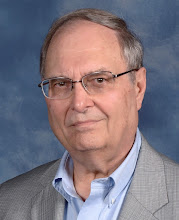I have had qualms about any connection with Uganda. Both the government and the leaders of the Church of Uganda have supported the anti-gay law that has been denounced by our State Department and my many other Western governments.
Among other things, St. Paul’s has been selling “fair trade” coffee from Uganda. Personally, I would rather have us sell coffee from elsewhere. That aside, however, I heard an interesting report today on the public radio program Here & Now. A recent report from the University of London, it seems, concludes that wages for seasonal workers in the production of fair trade goods are lower than in non-fair trade production. Fair trade products are instead intended to support small farmer, the “job creators,” as it were, not the lowest workers in society.
I don’t know quite what to make of this information, and I don’t know what to think about coffee sales by St. Paul’s. The radio segment was thought-provoking, however. You can find more information here.
“The Intel On This Wasn’t 100 Percent”
9 years ago



1 comment:
I would caution against damning all things Ugandan. People can learn more about the Ugandan Gold enterprise at their website http://www.ugandangold.com/ or this fairly ancient article from USA Today http://usatoday30.usatoday.com/news/religion/2007-05-23-coffee-mission-uganda_N.htm .
The objective is to provide employment and income to Ugandans as well as to provide funding for clean water projects. The actual monies generated far exceed the "fair trade" objectives by multiples.
The government of Uganda is far from perfect but it is elected by the entire populace. The meddling by Americans to influence the reprehensible anti-gay legislation is something that we as Americans should address. I see it as simply exporting hatred.
Disclaimer: My wife and daughter are active in ministries to support an orphanage in Uganda, I think their work is valuable. Further I think it's important for the Ugandans to encounter people who simply want to work with them to address real human needs, not just to steer policy and legislation.
Geoff Hurd
Post a Comment